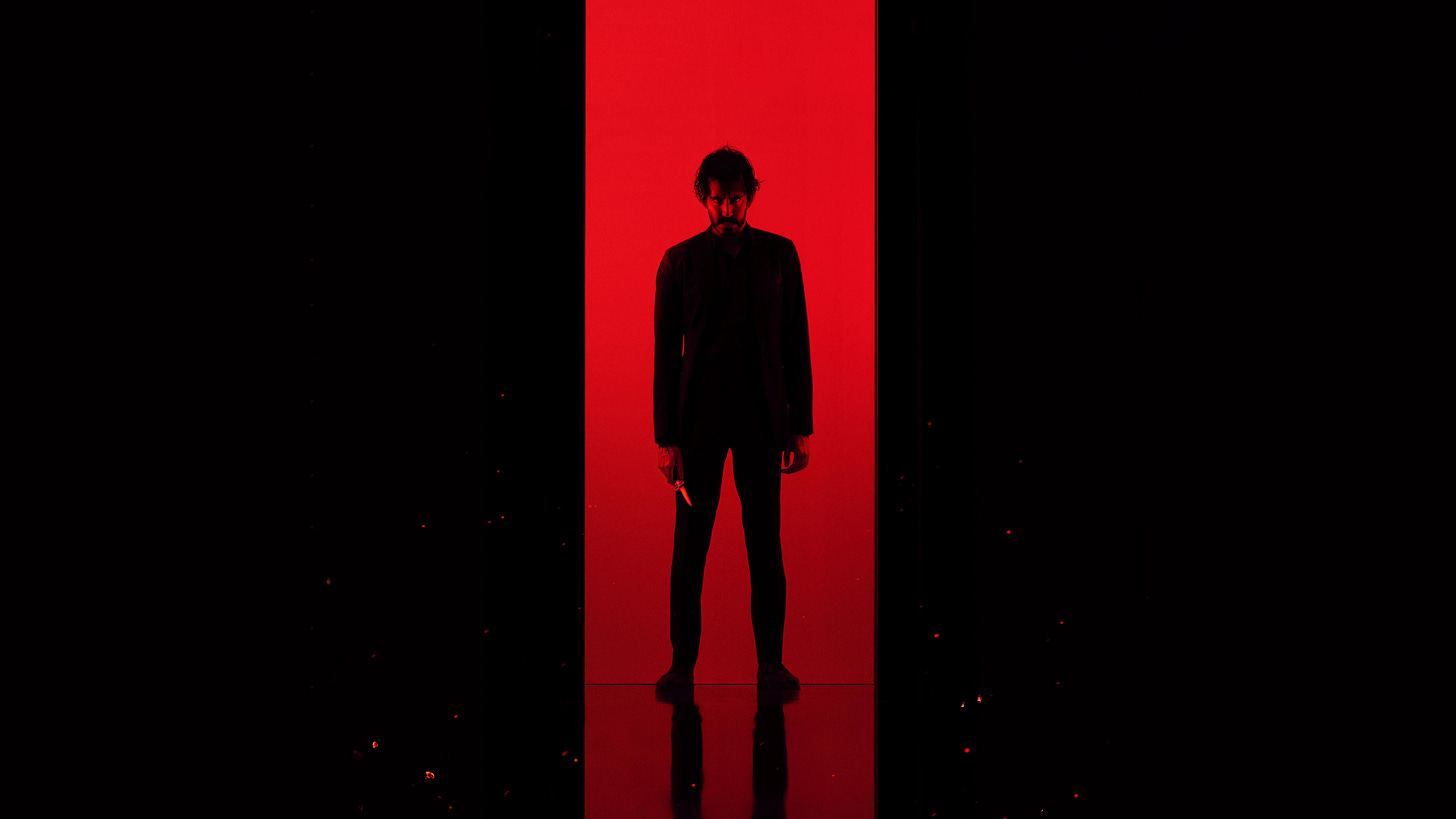Welcome back to Cansler Culture, which took a brief hiatus while I was on vacation.
I had initially planned to send out my latest article for World Politics Review during the break, but I forgot to schedule that. So here it is now:
Macron Has a Lot Riding on the Paris Olympics
The stakes are high heading into the 2024 Olympic Games in Paris, not only for the International Olympic Committee, which needs to reset the narrative around the burden of hosting the Games, but also French President Emmanuel Macron, who is trying to boost France’s leadership of Europe in the emerging post-American world.
Obviously, A lot has happened while the newsletter has been away. As such, it’s only natural to start today with an under-the-radar topic that a lot of you may not have heard about, but on which my commentary was explicitly requested.
The Tortured Poets Department
I was not fully convinced, before Taylor Swift’s latest album was released, by the narrative of widespread “Swift fatigue” in the general public. It seemed that the fatigue numerous articles spoke of was largely limited to non-fans (who are, as in every case, easily fatigued) and people who are required to write about/talk about/think about Taylor Swift professionally.
Still, if there was any fatigue—even potential fatigue—for Swift to be concerned about, The Tortured Poets Department, her latest album is unlikely to help. Anyone who was even remotely tired of her omnipresence and constant drip-dripping of new content when this album was released could only be further wearied with the release two hours later of 15 additional songs.
Releasing 31 songs in one night is the high-water mark of the release strategy Swift has shifted into over the past five years, one that is more in line with those deployed in hip-hop in the preceding decades. In this strategy, rather than only releasing your best work, and only doing so intermittently, you overload the system by releasing essentially every piece of work you create.
To be sure, this strategy has its benefits:
It games the music charts. (Swift occupied the entire Top 10 on the latest Billboard Hot 100 and had the second-largest debut ever on the Billboard 200.)
It lowers the stakes of any given release. (If you’re constantly releasing new music, then a miss isn’t a big deal. And if an album has 31 tracks, the bad ones can simply be forgotten.)
It ensures the ever-shortening attention span of the internet doesn’t forget about you.
All of these are particularly true in the streaming era, when most people don’t need to weigh whether to buy an album or not. They can simply listen through it once or twice for free, add the songs they like to a playlist and forget about the rest.
In this case, though, I would argue that the strategy undermines The Tortured Poets Department. This is an album that rewards repeat listens, and also begs to be taken seriously as a work of art. The extensive tracklist, which includes more than a handful of misses, not only creates a barrier to that repeated listening, but also signals a lack of ability to self-edit.
Still, I suspect there is an additional reason behind this release strategy, one that reflects how the notion of an “era” in an artist’s discography has changed.
Swift has long relied on the era as a way to separate out different parts of her career—each one ostensibly has a defined and unique aesthetic, sonic palette, lyrical subjects. There was a time, though, when each era was also a space for her fans and her persona to live inside, like a metaphysical costume.
But if there is anything Swift’s ongoing Eras Tour and her album rerecording process have proven, it is that the eras in her discography are far more powerful as shared memories to look back upon than they are spaces to live in the present. In other words, every new era is of more use to Swift once it is in the past.
As importantly, the memories of Swift’s past eras are rarely perfectly in line with how they were defined contemporaneously. “All Too Well” was hardly a defining hit during the Red era (c. 2012-2014), but it is remembered as such now because her fans ensured that song had longevity, which she later fed into.
And in the streaming era, when virtually all music is equally accessible and any song from any era can go viral at any time, each new album Swift releases is, functionally, nothing more than an addition to her discography.
In other words, the present for Swift now exists primarily to create memories that she can appeal to later.
As a result, there is little need for Swift to spend much time trying herself to define how each of her new eras will be remembered when she can let her fans do that work for her. She may as well release 31 songs on one album. The ones that listeners decide should be forgotten will be; the ones they decide will define this work will do so.
As for my own review, my initial experience listening through all 31 songs was a mixed bag—some great songs, some ok, some not-so-great. Once I started only listening to the good songs, though, I started thinking of this album more fondly. Funny how that works.
I expect that five years from now, there will be a surprising amount of nostalgia for an era of Swift’s discography that was initially received quite tepidly.
Anway, here’s my edited-down version of the album. And if you’ve made your own, send it my way.
Monkey Man
Is India the new China? In most ways, probably not.
But specifically when it comes to the country’s relationship to Hollywood, I suspect we may be heading in that direction.
The case-in-point concerns the film Monkey Man, a neo-noir action thriller released last month that follows a man in a fictional Indian city intent on avenging his mother’s murder when he was a child. Specifically, he takes aim at the police chief who forced his village off their land and the widely respected religious leader who ordered it done.
What sets Monkey Man apart from many other films in this genre—besides it being quite good—is that it pretty explicitly comments on modern Indian politics and the wave of Hindu nationalism ushered in over the past decade under PM Narendra Modi, who is likely to secure a third term in ongoing elections.
Neither Modi nor his party are specifically referenced, but the religious leader at the center of the film’s revenge plot serves as a stand-in for the overall Hindu nationalist movement. And the film does directly depict religious violence and the targeting of minorities in India.
And yet, despite speaking directly to contemporary Indian politics, Monkey Man’s release in India has been delayed. The film hasn’t yet cleared the country’s certification board, which must approve every film publicly released in India. There are some rumors that it may not be approved at all.
This is despite the fact that Monkey Man’s filmmakers reportedly already altered some aspects of the film to make it less explicitly about India’s current political leaders, including changing the signature color of the film’s Hindu nationalist political party from the real-life orange to red in post-production.
I’ve written before about the rise of Hindu nationalism at India’s box office, but that has so far been primarily an issue regarding the country’s own film industry. Since Indian politics is rarely engaged with by foreign films, Monkey Man may be the first high-profile movie to test India’s censorship of foreign films.
Considering how lucrative India’s box office is, it would not surprise me if Monkey Man is edited further in order to secure approval in the country. That would put India in line with China, which has in the past required Hollywood studios to alter their films in order to secure release there, particularly in the 2010s. Now, Hollywood rarely gets a big release in China at all.
So, will India become the new China? At least with this issue, Monkey Man may tell us.
What Else I’m Following
The suspicious (non)release of The Sixth, a documentary on the Jan. 6 insurrection produced by A24.
The Russian republic of Chechnya banning music considered either too fast or too slow.
The Drake and Kendrick Lamar feud, which is now moving at lightspeed. (This one should really be under “what I’m trying and failing to follow”).
John Mulaney’s semi-live comedy special series, which is airing on Netflix this week.
That me espresso:
That’s all for this edition of Cansler Culture. As always, if you like what you’re reading, feel free to subscribe and/or pass it along.




